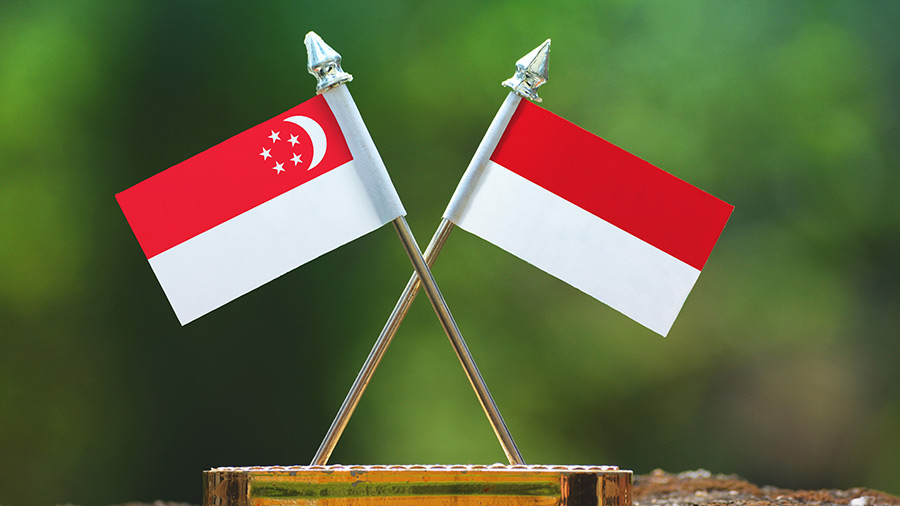
Indonesia and Singapore signed six memoranda of understanding (MoUs) in late March 2023 to enhance bilateral ties. The MoUs cover renewable energy, sustainable housing development, knowledge sharing and research, healthcare, urban search and rescue, and technology exchange.
The agreements were signed against the backdrop of the Singapore-Indonesia Leaders’ Retreat; the sixth between Singapore Prime Minister Lee Hsien Loong and Indonesian President Joko Widodo.
Further, both leaders oversaw the ratification of the three agreements under the Singapore-Indonesia Expanded Framework that was signed in January 2022. These agreements cover the realignment of the flight information region (FIR), defense cooperation, and an extradition treaty.
Renewable energy
Under the MoU for renewable energy, Singapore and Indonesia will cooperate to facilitate investments in renewable energy manufacturing facilities in Indonesia, including for the development of its upstream and downstream industries. These include investments in solar farms and battery energy storage systems.
Indonesia has abundant renewable energy resources of more than 3,000 GW, comprising geothermal, wind, solar, bioenergy, and hydro. The country has 40 percent of the world’s geothermal energy reserves whereas over 800 rivers in Indonesia have the potential to generate hydropower energy of over 75 GW.
Moreover, both countries will explore electricity export projects to Singapore from Indonesia. Singapore has a goal of importing up to 4 GW of low-carbon electricity by 2035, making up 30 percent of the city-state’s energy supply.
Sustainable housing development
The sustainable housing development MoU aims to facilitate the exchange of information on the best practices for sustainable infrastructure development. Both governments will use Indonesia’s new capital, Nusantara, as one of the pilot projects.
Further, another potential city for knowledge exchange on urban regeneration will be the Jakarta Metropolitan Region, which has more than 30 million residents and is in need of major urban regeneration. Over 40 percent of the current capital is below sea level and the city is consistently ranked as having one of the worst traffic congestions in the world.
Knowledge sharing, capacity building, and research
The Indonesian government plans for the new capital at Nusantara to be a green and smart city, encompassing information, communication, and technology infrastructure to improve operational efficiencies and provide a better quality of government services. Some 75 percent of the planned site of the capital city will be green open space, of which 65 percent is a protected area and 10 percent is for food production.
President Joko Widodo noted that he received 20 Letters of Intent from the Singaporean private sector to invest in Nusantara.
Tech exchange program
Under this MoU, technology professionals from Singapore and Indonesia can pursue growing opportunities in each other’s digital economies for up to a year, through the Tech X Program. The program will be open to these professionals below the age of 30 and who have graduated with at least a bachelor’s degree not more than five years prior. The list of accepted universities is as follows:
Singapore
Indonesia
Healthcare cooperation
The Ministry of Health of Indonesia and Singapore will cooperate to promote the exchange of knowledge, information, data, and technology in the health sector.
Urban search and rescue
The Indonesian Search and Rescue Agency and the Singapore Civil Defense Force will establish a framework for urban search and rescue by exchanging knowledge and expertise. Further, both organizations will provide mutual assistance during a natural disaster.
Source: ASEAN Briefing
Share: